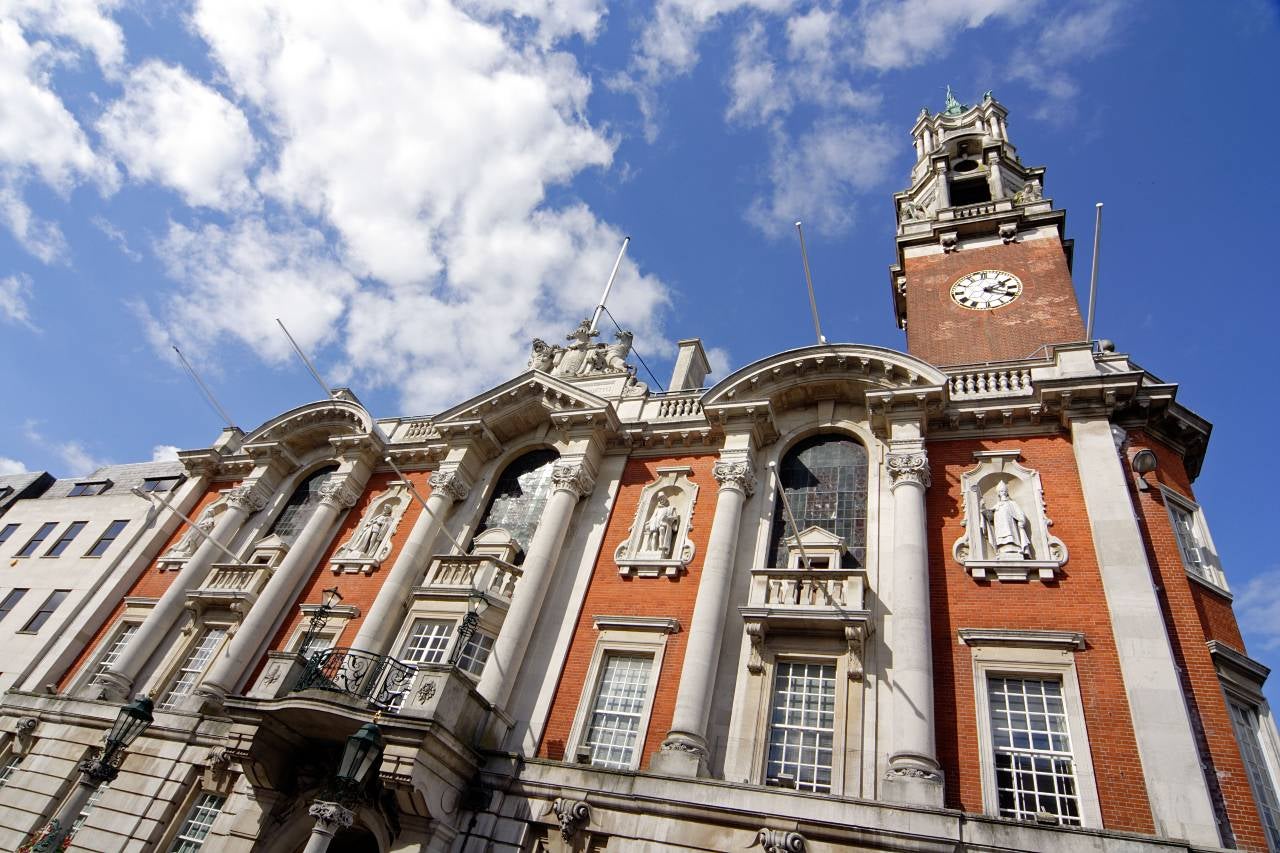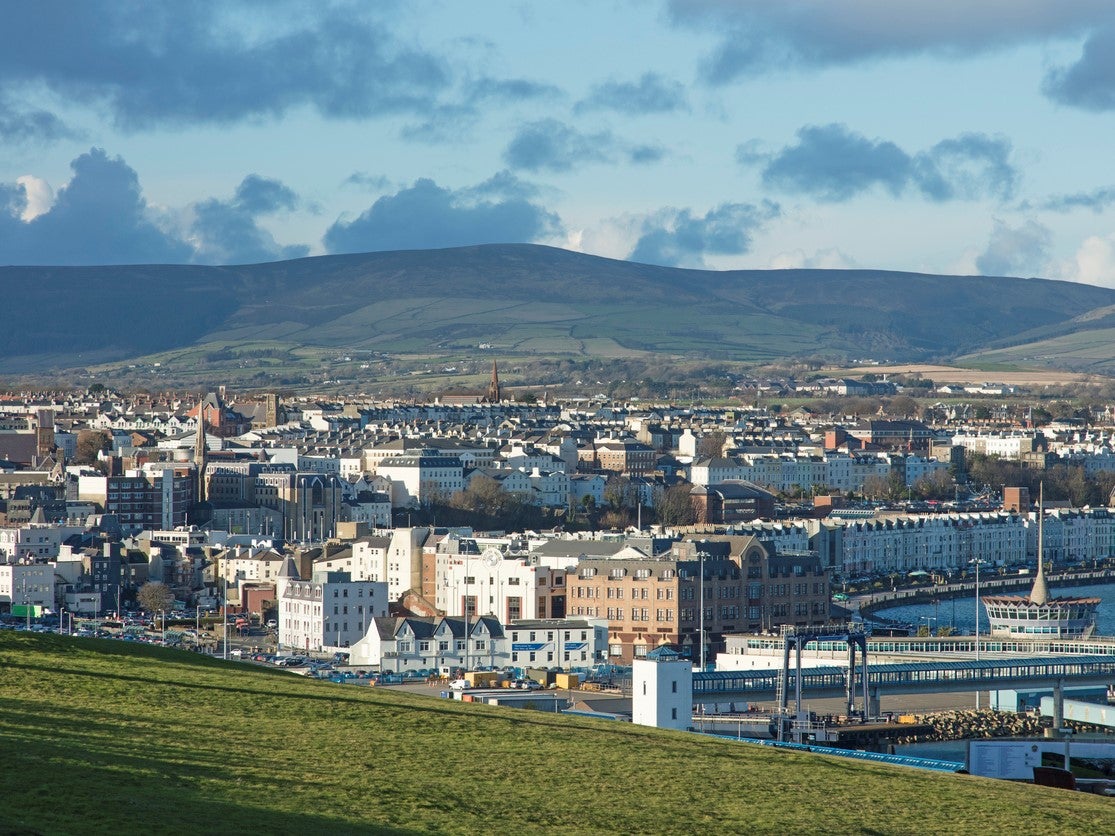
When Colchester councillor Darius Laws was told on Thursday the town was to become one of eight new cities for the Queen’s platinum jubilee, he couldn’t hide his joy.
“I was in my office fist pumping the air,” he says. “I was ecstatic. This is effectively a knighthood for every man, woman and child living here. What an honour that is.”
It was a sentiment widely shared by civic leaders in the seven other new cities.
In Douglas, on the Isle of Man, council leader Claire Wells said the upgrade would give the island a “global platform”. Dan Fell, chief executive of the Doncaster Chamber, predicted the South Yorkshire town would become a “magnet for inward investment”. Jobs and opportunities would follow, he added.
Except, well… will they really? Does being renamed a city – an ambiguous concept with no actual definition – truly bring any lasting benefits to a place?
Or are those honoured – also Milton Keynes, Dunfermline, Bangor, Wrexham and Stanley in the Falkland Islands – simply being given a bauble that holds no real meaning beyond allowing the local council to re-head its notepaper?
“Of course it means something,” insists Laws, who led Colchester’s bid. “Look, if you make a man a knight, does that make him a better fighter? Yes, it does. Because it’s a feeling. It’s an emotional thing. It’s the same here. Being a city will drive us forward. I think even cynics will come to see that.”

Among the suggested benefits of city status are greater potential investment, increased cultural opportunities, more tourist interest, and a fillip for civic pride.
“By being a city, [a place] has a greater position on the world stage,” said cabinet minister Jacob Rees-Mogg. “It helps towns that have become cities to have a boost in their reputation.”
The problem is there is no actual evidence to suggest such a boost actually happens.
Ten years ago, ahead of three towns being made cities for the Queen’s diamond jubilee (Chelmsford, Perth and St Asaph), Dr Steve Musson, an economic geographer with the University of Reading (not a city), set out to address this very issue.
His research into whether upgraded civic status led to direct economic benefits came to a simple conclusion: it did not.
“The claims that applicants tend to make in their bid is that it will attract business investment and create new jobs,” he says. “Sometimes they might say it will lead to tourism, but mainly it’s about investment and jobs. And sometimes, in the past, that has happened. But equally, sometimes it hasn’t. Which is the same pattern for other places [which haven’t become cities] so no, there is no evidence of any uplift.”
It is probably a logical finding, he reckons.
Businesses considering investing in a new location invariably consider a range of factors, including the local labour market, site availability, potential tax breaks and transport links. But whether a place is officially considered a town or city? “I imagine that would be relatively low on their list of priorities,” says Musson.

There may be some nuance to this, of course.
Some 39 towns applied to be cities as part of this year’s competition. They stretched from Dorchester to Dumfries, Blackburn to Ballymena, and Gibraltar to George Town in the Cayman Islands.
Many did so because, while bid bosses realised the tangible benefits might be ambiguous, they felt the new title would both bring publicity and help create – or add to – a narrative of a place on the up.
Brighton may be a good past example of this, says Musson.
“It was already on a sort of economic upswing before it was made a millennium city,” he says. “But being given that status added to that perception of reinvention. It was part of the rebranding and telling a new story.”
Preston was on a similar upward trajectory – an expanding economy; a growing population; and one of the country’s fastest-growing universities – when it became England’s 50th city in 2002. The new honour felt like a confirmation that it “had joined an elite club”, Stephen Parkinson, the bid leader, told the BBC afterwards.

Yet, if the whole thing is basically a rebranding excercise, there may be something else to consider here, too. Namely, the cost.
City bids do not put themselves together. The application document is 25 pages long and requires historic, cultural and demographic data as well as photos and maps. They take hours of council time and no small amount of expense. Preston’s 2002 bid cost £30,000, it was revealed afterwards.
In Colchester, Laws says the outlay was just £8,000 – but, in the midst of a cost of living crisis, some may question if that was a judicious use of money. Certainly such expenditure seems of even less value for the 21 towns whose bids were rejected.
“It’s nothing more than a bauble - and not a cheap one at that,” says author John Elledge, who previously edited the CityMetric data website.
He points out that, while the Queen rubber stamps which places should be honoured, it is the government of the day that makes the decision.
“You look at Doncaster,” he says. “There’s been a complete lack of any real investment there for years. So what is this? Chuck it city status and hope that distracts everyone from the fact nothing else is being done.”







